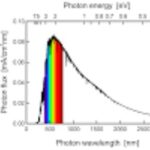It’s a common morning experience for many: you drink your coffee and shortly after, you feel the urge to poop. But why does coffee have this effect on our bowels? The answer is more complex than you might think, and scientists are still unraveling all the details.
One thing researchers have found is that coffee’s effect isn’t universal. A study published in the journal Gut in 1990 explored this very question. They surveyed 92 young adults about coffee’s impact on their bowel habits. Interestingly, only 29 percent reported that coffee made them want to defecate. Within this group, the majority, 63 percent, were women. However, it’s worth noting that medical professionals suggest the overall percentage of people experiencing this effect might be higher, possibly around 60% in the general population, with no significant gender differences observed in broader patient groups.
The speed at which coffee can trigger this response is also quite remarkable. The same 1990 study used pressure-sensing probes inserted into the colons of some participants. In those who reported coffee usually stimulated a bowel movement, the probes detected a significant increase in pressure within just four minutes of drinking coffee. Meanwhile, those who didn’t usually experience this effect showed no change in their colon activity.
This rapid action suggests that coffee isn’t simply working its way through your digestive system quickly. Instead, it’s more likely triggering what’s known as the “gut-brain axis.” As Dr. Martindale explained, when coffee reaches the stomach, it sends a message to the brain. The brain, in turn, stimulates the colon to prepare for incoming food by emptying out. The coffee itself takes much longer to travel through the entire digestive tract, likely at least an hour to move from the stomach through the small intestine and finally to the colon.
This communication loop between the stomach, brain, and colon is called the gastrocolic reflex, and it’s a normal response to eating. However, coffee appears to have a particularly strong influence on this reflex. A 1998 study found that just eight ounces of coffee stimulated colonic contractions to a degree similar to that of a 1,000-calorie meal.
Researchers have proposed that the gut-brain messaging initiated by coffee is likely due to one or more of the many chemicals present in coffee. It may also involve hormones that play crucial roles in digestion, such as gastrin and cholecystokinin. Levels of both of these hormones have been shown to increase after coffee consumption.
While the exact mechanisms are still being investigated, it’s clear that coffee’s effect on our bowels is a complex process involving the gut-brain axis, the gastrocolic reflex, and potentially hormonal responses. So, the next time you reach for your morning cup of Joe and experience that familiar urge, you’ll know there’s some fascinating science at play.

